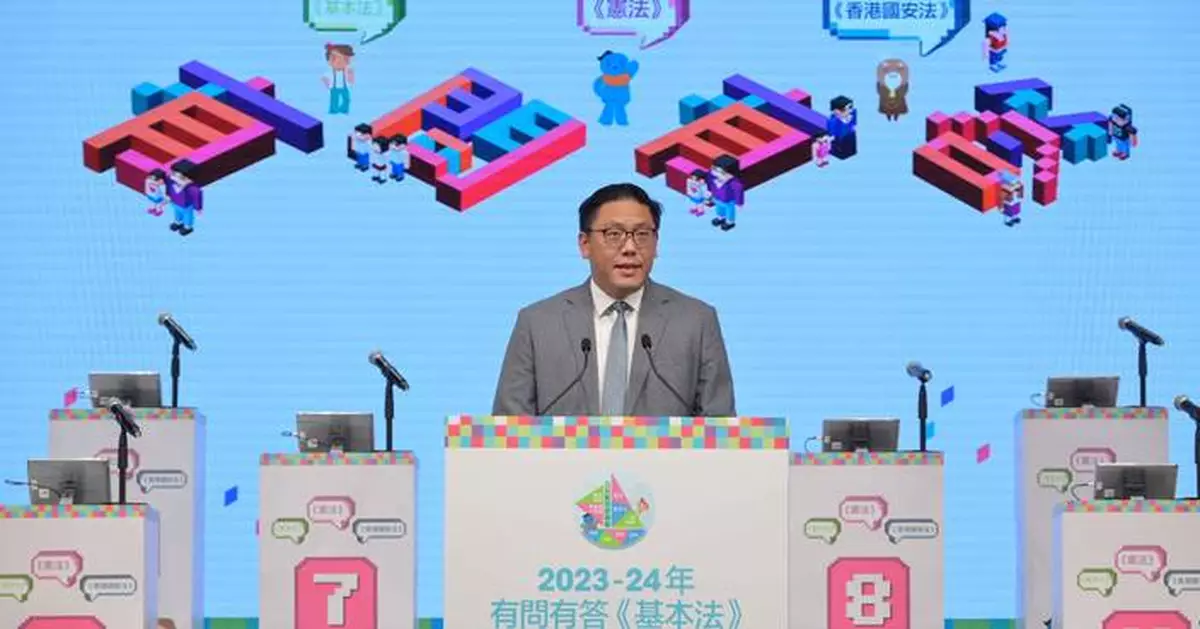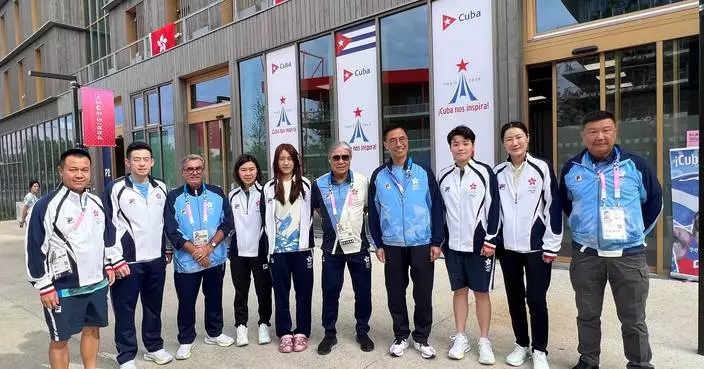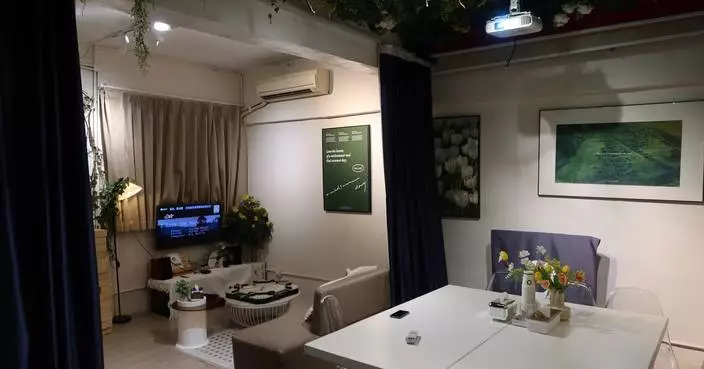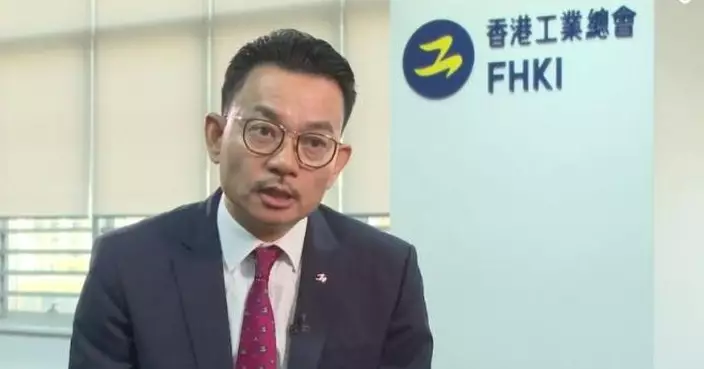Exciting showdown at the basic law quiz competition: who will take home the prize?
Jointly organised by the Home and Youth Affairs Bureau (HYAB), the Committee on the Promotion of Civic Education (CPCE) and the Working Group on Local Community under the Constitution and Basic Law Promotion Steering Committee, the Basic Law Quiz Competition Final and Prize Presentation Ceremony was held today (April 21). This year's competition received an overwhelming response, attracting a record-breaking number of over 42 000 participants.
Speaking at the ceremony, the Acting Secretary for Home and Youth Affairs, Mr Clarence Leung, said that the establishment of the Hong Kong Special Administrative Region (HKSAR) stemmed from the Constitution. Article 31 of the Constitution stipulates that "the state may establish special administrative regions when necessary". The formulation of the Basic Law and the "one country, two systems" principle were also based on the Constitution. Under the "one country, two systems" principle, the Central Government authorises the HKSAR to enact laws on its own to prohibit acts that endanger national security in accordance with Article 23 of the Basic Law. The Safeguarding National Security Ordinance officially took effect upon gazettal on March 23, ensuring the effective protection of national security and enhancing social stability and harmony. With safety comes stability; with stability comes prosperity.
He added that the HKSAR Government has been dedicated to enhancing public understanding of the Constitution, the Basic Law and the National Security Law, while the ceremony is one of the flagship events of the HYAB. He said he was delighted to know that the number of participants this year reached a record high and thanked the public for their support for the competition.
The quiz competition covered the relationship between the Constitution and the Basic Law, the Basic Law and its history and the National Security Law. The competition comprises the Family, Senior Primary School, Secondary School and Open categories. To tie in with the quiz competition, the organisers hosted four seminars in February and March to introduce the Constitution and the Basic Law to secondary and primary school students.
The HYAB has long been working closely with the CPCE in promoting the Constitution, the Basic Law and the National Security Law at the community level through various channels and diversified means, including publishing parent-child magazines, creating websites and social media pages, organising competitions, seminars and exhibitions, as well as sponsoring eligible organisations to organise various promotional and exchange activities on civic and national education.

Basic Law Quiz Competition Final and Prize Presentation Ceremony held today Source: HKSAR Government Press Releases
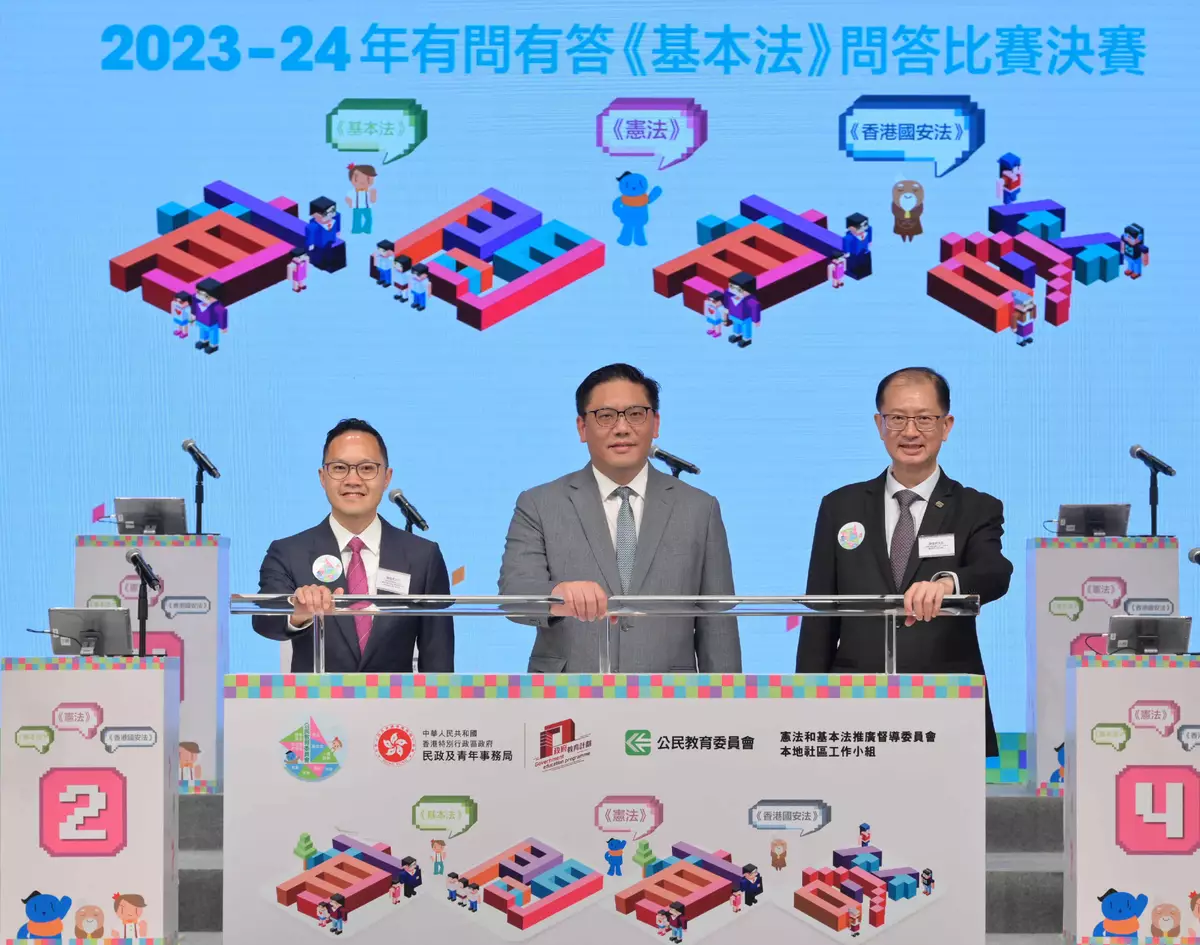
Basic Law Quiz Competition Final and Prize Presentation Ceremony held today Source: HKSAR Government Press Releases
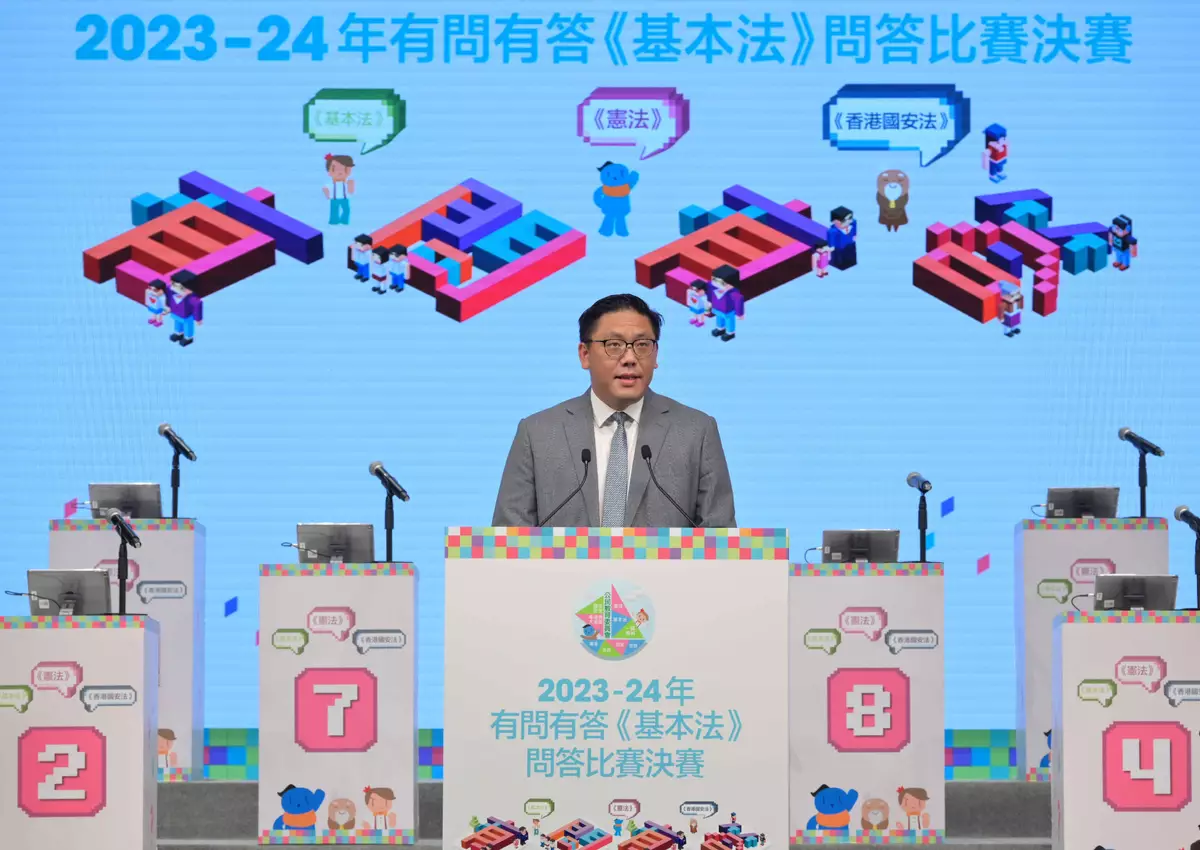
Basic Law Quiz Competition Final and Prize Presentation Ceremony held today Source: HKSAR Government Press Releases


